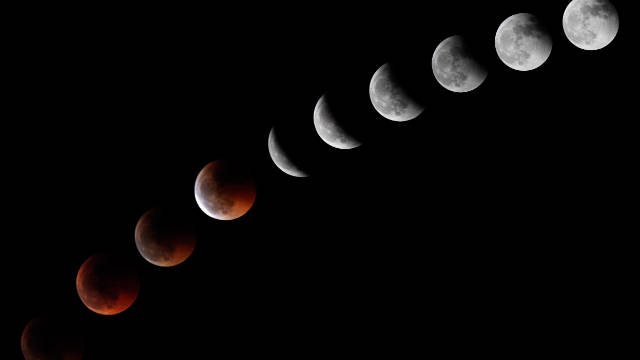sugar go..go..
Long live the King
|
http://www.prcdd.cdd.go.th/54_december/328/328.html
http://edition.cnn.com/2011/12/09/us/lunar-eclipse/index.html?hpt=hp_c2
West Coast will have best seat for Saturday's lunar eclipse
December 10, 2011 -- Updated 0850 GMT (1650 HKT)
A sequence of combined photos shows the progression of a lunar eclipse from June of this year.
STORY HIGHLIGHTS
- NEW: Australia and parts of Asia will have a great view when the eclipse unfolds
- During totality, the Earth's shadow completely covers the moon
- The eclipse will last from 6:33 a.m. till 12:30 p.m. Eastern
- All of the United States will be able to see some portion of it
(CNN) -- A lunar eclipse will occur Saturday, and all of the United States will be able to see some portion of it.
The West Coast will have "a more complete view" of Saturday's event and will be able to see the totality, the time when the Earth's shadow completely covers the moon, according to NASA.
That totality on the West Coast is timed as the moon sets and the sun rises, NASA said. The peak, when the moon is a deep red, will occur at 6:30 a.m. Pacific, NASA said.
The East Coast won't have such a nice view, NASA said. Atlantic seaboard residents will only see the earliest portion, when the moon begins to enter Earth's shadow, and the dimming will be very slight and may be difficult to see, NASA said.
The eclipse will last from 6:33 a.m. Eastern (3:33 a.m. Pacific) till 12:30 p.m. Eastern (9:33 a.m. Pacific). The totality will last 51 minutes, NASA said.






No comments:
Post a Comment